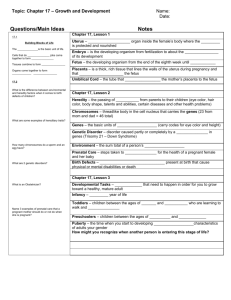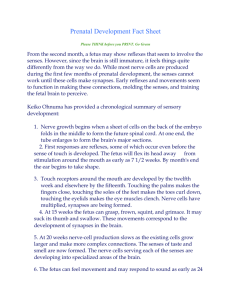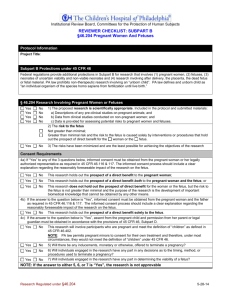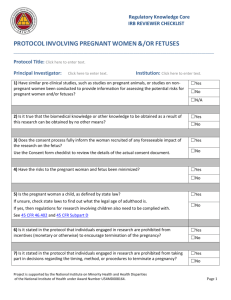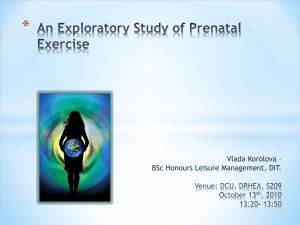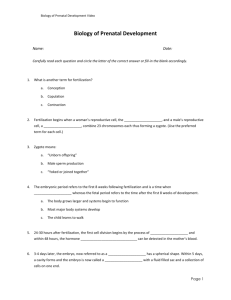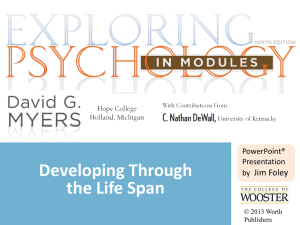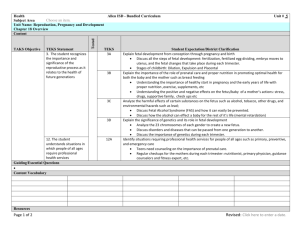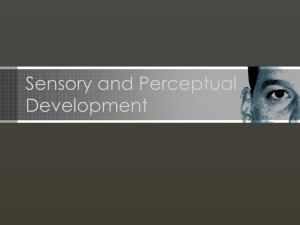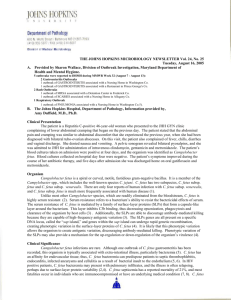5. A case in Biomedical Ethics
advertisement
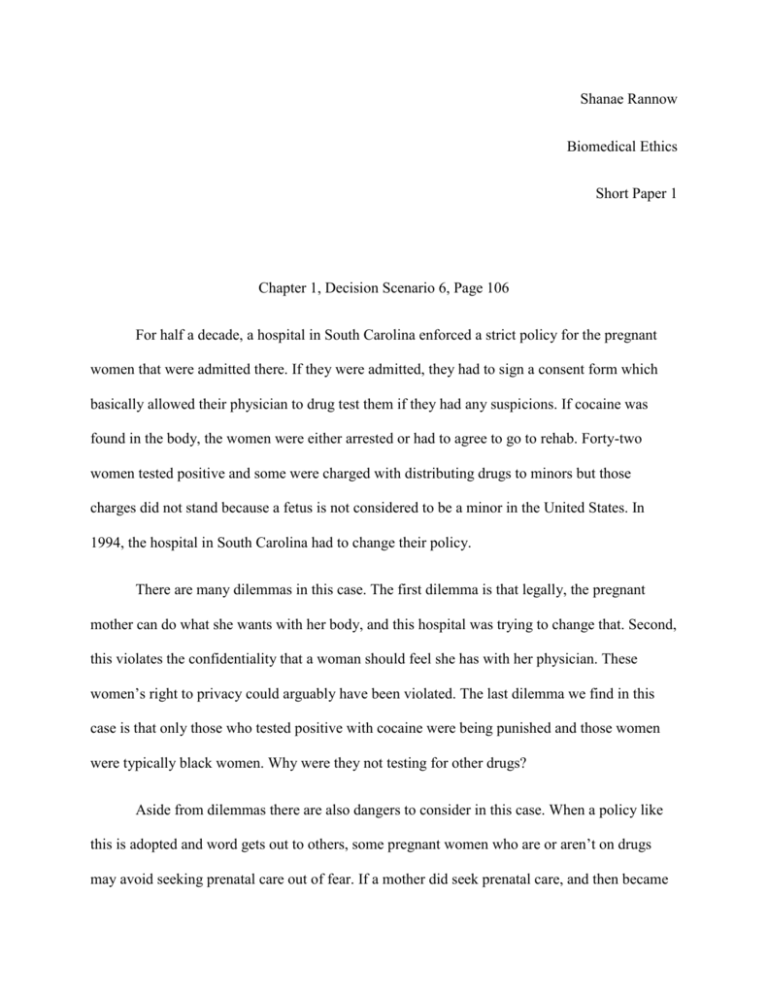
Shanae Rannow Biomedical Ethics Short Paper 1 Chapter 1, Decision Scenario 6, Page 106 For half a decade, a hospital in South Carolina enforced a strict policy for the pregnant women that were admitted there. If they were admitted, they had to sign a consent form which basically allowed their physician to drug test them if they had any suspicions. If cocaine was found in the body, the women were either arrested or had to agree to go to rehab. Forty-two women tested positive and some were charged with distributing drugs to minors but those charges did not stand because a fetus is not considered to be a minor in the United States. In 1994, the hospital in South Carolina had to change their policy. There are many dilemmas in this case. The first dilemma is that legally, the pregnant mother can do what she wants with her body, and this hospital was trying to change that. Second, this violates the confidentiality that a woman should feel she has with her physician. These women’s right to privacy could arguably have been violated. The last dilemma we find in this case is that only those who tested positive with cocaine were being punished and those women were typically black women. Why were they not testing for other drugs? Aside from dilemmas there are also dangers to consider in this case. When a policy like this is adopted and word gets out to others, some pregnant women who are or aren’t on drugs may avoid seeking prenatal care out of fear. If a mother did seek prenatal care, and then became aware of the hospital’s policy, she may choose to not seek any further care, including giving birth. It is dangerous in this year to give birth outside of a hospital with no birthing professionals. It is even more dangerous to do this if the child is born with drugs in their system because of many different medical issues the newborn could have. With increased fear and pressure on the mother, she may also choose to abandon the newborn baby or discard of it, for the simple fact that if she seeks medical attention from the hospital, there could be repercussions for her actions. Medical attention is not something that should be feared, no matter what situation anyone is in. This stigma is the same stigma that many blacks had after Tuskegee, and as Americans I do not think we want to place fear in our vulnerable pregnant mothers. This policy creates fear and it also violates autonomy. If this was an actual child that the mother was distributing drugs to then the mothers autonomy would be overridden by nonmaleficence and paternalism, but since the fetus does not have any rights we unfortunately have to respect the mothers choice to do drugs during pregnancy and legally cannot intervene because of the fact that it is a fetus and not a human being yet. Non-maleficence does state that we prevent harm to others, but it does not state that we must prevent harm to fetuses because if that was the case we would really have to take a closer look at abortion as well because that too causes harm. We also have to grant the paternalism to the mother in this case, and believe that she knows what is best for her fetus. This South Carolina hospital created a policy that was not just. If this policy was created behind the veil of ignorance then not just cocaine users would be punished. It would be justified if and only if all prenatal harm to the fetus that was caused by the mother was treated equally. This opens discussion for what prenatal harm is. Abortion and things like bad diet could arguably be considered, other illegal drugs would definitely be considered, cigarette smoking and alcohol consumption are also things to be considered because they all cause harm to the fetus. When the hospital classified harm to the fetus down to just cocaine use, they ended up targeting a certain minority group which happened to be black women. If the hospital considered all harm to the fetus to be equal, they would find a more diverse group of women to punish for their wrong doings. This would also be an extremely large group of women, much larger than 42, and maybe that is why the hospital chose just cocaine but by doing that this policy was not created in a just way. I understand why this policy was put in place, and that was out of protection of the future child. The hospital was trying to create a policy that promoted high utility and promoted beneficence. They were also trying to act in a paternalistic way, because if the mother is on drugs we can assume that she may not know what is best for the fetus. They approached tackling this issue in an interesting way though, because there policy still has the same outcome of newborns with drugs in their system, regardless of what happens to the mother. The hospital was also trying to create a policy to protect children, but the only way they found reliable to do that was to try to protect a fetus that has no human rights. By doing it in this way, they violated many ethical principles. My suggestion for this hospitals policy is to completely get rid of the old one because it violates so many principles and still ends up with drug affected newborns and punished mothers. Instead of strict policies that come from acting in a strong paternalistic way, maybe the hospital should offer more resources and education to pregnant women and new mothers so they understand exactly how their newborn or fetus is being affected by their actions. During prenatal care, instead of scaring pregnant women with drug tests the hospitals could thoroughly explain all options to the mother (abortion, adoption, keeping the child) so that the mother has enough knowledge to make an educated decision on whether or not she wants this child. If the mother for sure wants that child, further prenatal education should be given to the mother. All of these things would be optional, which still allows the mother to have her autonomy. These things could also instill confidence in the mother, instead of fear of the hospital like the hospital’s previous policy did. After the pregnant mother gives birth, and the fetus becomes a human being further legal action should be taken against a mother who harms another human being, but it looks like during pregnancy there is not much we can do.
